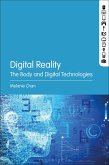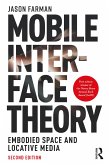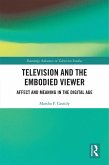As contemporary scholars, journalists, and commentators have indicated, mobile digital devices promote a constant shift of attention between the world around us and the stimulations afforded by screen-based interfaces. Investigating these uniquely contemporary hybrid interactions, Melanie Chan posits that while digital technologies are part of a long and historic trajectory, they nonetheless may instigate new forms of corporeal practices and experiences. How might continuous engagement with mobile devices and associated software impact our perception of sensory embodied experience?
Drawing upon existing scholarship around mobile media and new media, Digital Reality explores digital technologies as phenomena (observable items such as such as smart-phones, handsets, consoles, head-mounted displays and goggles) in the light of theories of reality and corporeality. In so doing, the book highlights the qualitative dimensions of our sense of aliveness, movement, and interaction within a range of environments (virtual, real, or hybrid). Ultimately, the book illuminates how our sense of shared, objective reality changes due to hybrid forms of reality.
Drawing upon existing scholarship around mobile media and new media, Digital Reality explores digital technologies as phenomena (observable items such as such as smart-phones, handsets, consoles, head-mounted displays and goggles) in the light of theories of reality and corporeality. In so doing, the book highlights the qualitative dimensions of our sense of aliveness, movement, and interaction within a range of environments (virtual, real, or hybrid). Ultimately, the book illuminates how our sense of shared, objective reality changes due to hybrid forms of reality.









